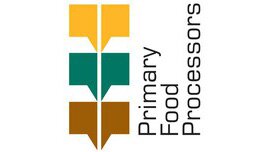End of 2013, European beet growers (CIBE), sugar producers (CEFS) and trade unions of the food and agriculture sector (EFFAT) formalised a landmark agreement to jointly highlight and report on representative Good Practices of sustainable production of beet sugar in the EU.
To read the Partnership Announcement you can click here.
Why sustainability?
Sustainability is a multidimensional concept that encompasses economic viability, environmental protection and social responsibility. With its flagship ‘Europe 2020 strategy’ the EU has put sustainability at the heart of the European project with the purpose of creating conditions of growth that is ‘smarter, more sustainable and more inclusive’.
This partnership agreement between European beet growers, sugar producers and trade unions in the beet sugar sector aims toreport on good agricultural, industrial, social and environmental practices for the sector while taking into account the relevant elements of economic viability needed for stable and reliable beet sugar production in the EU.
Why now?
European beet sugar production has achieved high levels of sustainability through continuous improvement in all three dimensions of sustainability (economic, environmental and social) in recent decades. Their more recent sustainability performance is recorded in the joint environmental and social projects set up in the last decade and still ongoing (see ‘further reading’ section at the end of this document).
The three partners of the European beet sugar sector acknowledge that in order to ensure the long-term sustainability of their sector they must continue to develop and disseminate good practices that support the consolidation of sustainable practices in EU beet growing and processing. Hence, through a common understanding of what constitutes sustainable production of beet sugar in Europe, the partners’ aims are:
- To facilitate the access to and dissemination of knowledge regarding sustainable practices in the sector.
- To help consolidate sustainable practices in EU beet growing and processing.
- To provide a platform for future dialogue in the field of sustainabilitywith other sector stakeholders.
How will the project be carried out?
The partners have agreed to create a working platform, including a steering committee and three technical working groups, covering notably agriculture, industrial and social aspects of beet sugar production in Europe. In addition, partners intend to involve external expertise to provide independent advice for this partnership.
The partners will be working together, engaging in a constructive dialogue and exchange with other stakeholders, while managing the overall process to deliver a concrete outcome for the sector within the following timeline:
What topics will be dealt with in this sustainability partnership?
Although only the joint work of the partners and, later on, the consultation of stakeholders will determine the final outcome of this joint work, the partners have agreed that as many topics as possible should be looked at, including at least the following:
Watch the video here:
Further reading:
In order to know more about the European beet sugar chain partners and their sustainability and Corporate Social Responsibility record, you can refer to the following documents:
- EFFAT-CEFS annual Corporate Social Responsibility (CSR) implementation reports (2003-2015)
- CIBE-CEFS joint reports on environmental sustainability (2003, 2010)
- Study on ‘The Carbon Footprint of EU Beet Sugar’ (2012)

